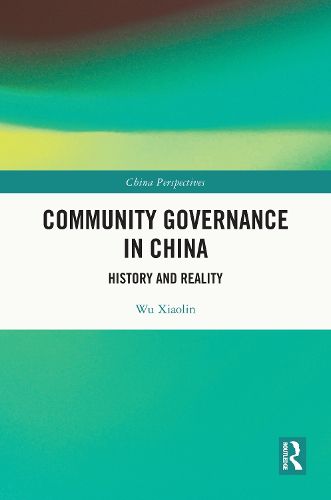Readings Newsletter
Become a Readings Member to make your shopping experience even easier.
Sign in or sign up for free!
You’re not far away from qualifying for FREE standard shipping within Australia
You’ve qualified for FREE standard shipping within Australia
The cart is loading…






This book provides an overview of China's distinctive community governance, examining its 2000-year history and describing its recent development under the leadership of the Communist Party of China.
The book presents new insights into community governance in China. It explores the historical genesis of community governance in imperial China, providing a link that helps to understand the relationship between ancient and modern community governance. By explaining the practical differences between "centralised governance" and "networked governance" in these contexts, it moves away from the myth of Toenniesian community and dissects the conceptual differences between Chinese and Western communities. This book is unique in its focus on the economic structure that underlies community governance and its identification of the root cause. It also investigates China's "poli-community" and the relationship between the state, society, and the family. Finally, the book proposes a potential approach for transitioning from a binary opposition between the state and society to a new mechanism of "state-created society" and building "associated communities".
This volume will be a valuable reference for scholars and students of Chinese politics, public management, and sociology, as well as for practitioners of community governance.
$9.00 standard shipping within Australia
FREE standard shipping within Australia for orders over $100.00
Express & International shipping calculated at checkout
This book provides an overview of China's distinctive community governance, examining its 2000-year history and describing its recent development under the leadership of the Communist Party of China.
The book presents new insights into community governance in China. It explores the historical genesis of community governance in imperial China, providing a link that helps to understand the relationship between ancient and modern community governance. By explaining the practical differences between "centralised governance" and "networked governance" in these contexts, it moves away from the myth of Toenniesian community and dissects the conceptual differences between Chinese and Western communities. This book is unique in its focus on the economic structure that underlies community governance and its identification of the root cause. It also investigates China's "poli-community" and the relationship between the state, society, and the family. Finally, the book proposes a potential approach for transitioning from a binary opposition between the state and society to a new mechanism of "state-created society" and building "associated communities".
This volume will be a valuable reference for scholars and students of Chinese politics, public management, and sociology, as well as for practitioners of community governance.